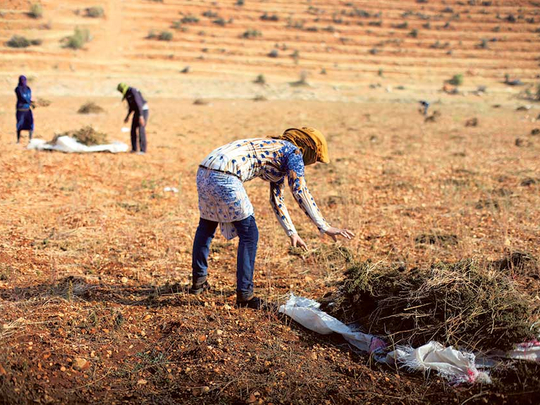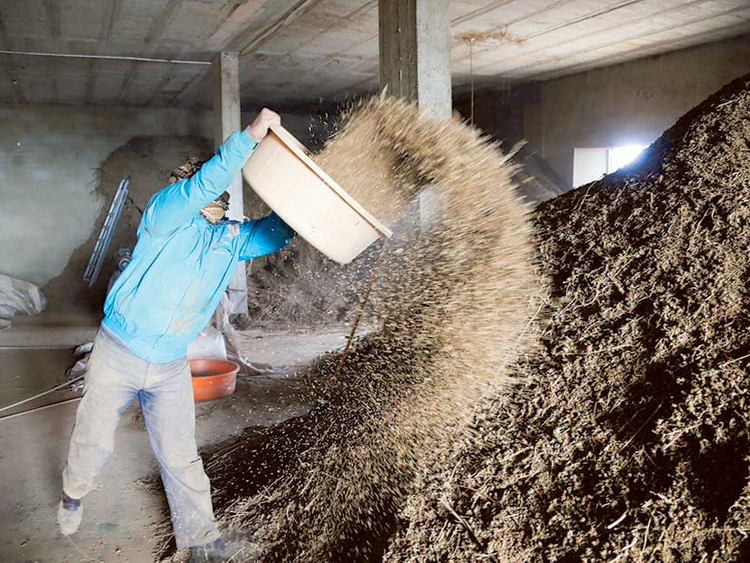
Beirut: Hashish has always been a powerful weapon of war, giving fighters a sense of invincibility.
The Israelis used it to corrupt the minds of Syrian residents of the Golan after the 1967 occupation and so did various Lebanese militias during the civil war.
High on drugs, they would slaughter, slit throats, dig up graves, and mutilate corpses.
Although always present in Syrian society it was never chronic or widespread — until war broke out in 2011.
Hashish is now widely on sale in different Syrian cities and towns, including the black market of the capital Damascus.
An A-class fifth year student of medicine at a private Syrian university was recently discharged in early June 2006 for “selling hallucination pills and weed” to his classmates.
Depending on the origin of its cultivation, hashish is called either ‘Al Afghani’ or ‘Al Baalbaki’.
Farmers from Raqqa, the capital city of Daesh, have found jobs cultivating the hashish farms of the Bekaa Valley of Lebanon, a decades-long venue for drug planting in the Middle East.
They then sell the drug to whoever is willing to pay in Syria.
End-dealers are ordinary people, ranging from university students and militiamen, to small shop owners or kiosks.
Some consume it for fun, at nightclubs and pubs; others use it to kill on the Syrian battlefield.
The breakdown of law and order has made the trade flourish in Syria; people are less afraid to offer “hashish” on the streets, still with a whisper, to avoid being overheard by government authorities, who used to deal with such an offence very seriously.
One of the reasons why hashish is on the rise is its low cost, when compared to other drugs.
The price of 50-grams ranges anywhere between 12,000-13,000 Syrian pounds (Dh88.16-Dh95.50) and this is a set price, both in regime-held areas, rebel-held territory, Kurdish territory, and the cities under control of Daesh.
Consumption is high on the battlefield and front-lines, where militants use drugs in order to endure hardship and kill with ease.
The highest consumption at this stage is in Ghouta, the agricultural belt surrounding Damascus, controlled by the Saudi-backed Islamic Army, or Jaish Al Islam, since 2012.
Once vast agricultural fields for fruits, apricots, and potatoes, Ghouta has been transformed into cultivation centres for hashish, grown and sold by Syrian militants to make money.
This has generated huge income for the rebels, in addition to arms trafficking and kidnapping.
Much of the production is sold undercover to government-held territories, revealing high cooperation between dealers on all fronts of the Syrian battlefield. In the Kurdish town of Kobani, cannabis has become a prized commodity, used by Kurdish militants in their constant wars with Daesh.
Five years ago Kurdish farmers in Kobani used to plant olives and cotton to make a living.
According to the Syrian Drug Law, possession of marijuana for personal consumption is a crime, punishable by prison terms that can reach up to three years. Possession of large amounts of weed, trafficking, and importation are punishable by anywhere between 3-15 years, or life imprisonment with hard labour.
In Raqqa, the capital of Daesh, possession of hashish — either for personal consumption or sale — is punished with immediate beheading. Since January 2016, the Drug Enforcement Administration at the Syrian Ministry of Interior in Damascus has seized 350kg of hashish with 2 million captagon pills, the drug that has been fuelling Syria’s war since 2011.
This is a significant drop, said Ahmad Darwish at the Drug Enforcement Bureau, noting that in 2003, 267kg of hashish was seized by Syrian authorities, in addition to 6 million captagon pills.
The number of drug-related crimes in government-held areas officially stood at 2,433 in 2012-2013, and has dropped to “around 1,500” in 2015-2016. One captagon pill costs 50 US cents to produce and sells on the Syrian black market for anywhere between 2,500-5,000 Syrian pounds.













